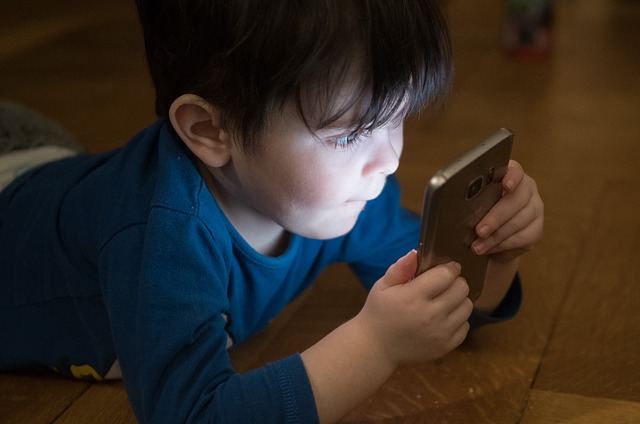Last updated on February 3rd, 2020 at 12:02 pm

Watch out parents of toddlers! a new study finds that kids between age 2 to 3 years spending time onscreen smartphones can lead to sedentary behavior and shorter time engaged in light physical activity and MVPA in later childhood.
The latest study conducted in Singapore published in the journal The Lancet Child & Adolescent Health reveals this fact that every parent should take note of.
Toddler spending more time onscreen can effect their behavior, and may lead to sedentary behavior and reduced physical activity. And we all know the ill effect of such behavior.
Toddler & screen viewing
Actually, it is already known and many studies suggest that screen viewing is a sedentary behavior that interferes with sleep and physical activity. Everyone of us in our own life might have experienced it, that going to bed with smartphones disturbs our sleep cycle of “early to bed and early to rise”.
However, few longitudinal studies have assessed such associations in children of preschool age (0–6 years) and none have accounted for the compositional nature of these behaviors.
This time researchers aimed to investigate the associations between total and device-specific screen viewing time at age 2–3 years and accelerometer-measured 24 h movement behaviors, including sleep, sedentary behavior, light physical activity, and moderate-to-vigorous physical activity (MVPA) at age 5·5 years.
Scientist recruited pregnant women to study
This interesting yet concerning research was carried by The Growing Up in Singapore Towards healthy Outcomes (GUSTO), it is an ongoing longitudinal birth cohort study in Singapore, which began in June 2009.
For this researcher recruited 1247 pregnant women between June 1, 2009, and Oct 12, 2010, during their first ultrasound scan visit at two major public maternity units in Singapore.
We all know that in the contemporary situation it’s near impossible to restrain our kids form viewing television and smartphone. When the toddler of recruited women grew to 2-3 age, a total of 987 children gave visits to the clinic.
Scientists collected parent-reported information about children’s daily total and device-specific screen viewing time. Screen device could be a television, handheld devices, and computers.
Out of 987 children, 840 kids at 5·5 years of age were again reviewed by scientists. They looked for children’s movement behaviors for 7 consecutive days that were measured using wrist-worn accelerometers.
They assessed the associations between screen viewing time and movement behaviors (sedentary behavior, light physical activity, MVPA, and sleep) using Dirichlet regression, which accounts for the compositional nature of such behaviors.
Findings ring a warning bell
The findings of the study ring a warning bell for all the parents with a toddler. Total screen viewing time at age 2–3 years had a significant negative association at 5.5 age with:
- Sleep,
- Light physical activity, and
- MVPA in relation to sedentary behavior
Surprisingly study finds that children who spent 1 h or less per day screen viewing at age 2–3 years were more physically active than children who screen viewed for 3 h or more per day at 2–3 years.
Second group of children was engaged in more sedentary behavior, and less light physical activity, and MVPA at age 5·5 years. However, no significant differences in time spent sleeping were observed between the groups. Similar trends were observed for television viewing and handheld device viewing.
Also read: Mental health actually improves in seniors using social media
What does it mean for us
We all need to take this research seriously and make sure that our kids spend more time outdoor rather on screen.

When writing this article, being myself a father of 3-year son I can feel that how difficult it is to discourage them from a smartphone.
But, still I try my best to make sure to steal time out of my busy schedule for weekly outing, as you can see in the image. On a daily basis, we try hard to discourage him from phones and engage him with toys and books.
What steps do you take to discourage your kids from smartphones? Leave yout thoughts below.
Reference Journal: “Associations between early-life screen viewing and 24 hour movement behaviours: findings from a longitudinal birth cohort study” Bozhi Chen, MPH, et al. Published:January 28, 2020DOI:https://doi.org/10.1016/S2352-4642(19)30424-9
The author is a physiotherapist who has been practising for the last 17 years. He holds a Bachelor's in Physiotherapy (BPT) from SVNIRTAR (Swami Vivekananda National Institute of Rehabilitation and Research), one of the prestigious physiotherapy schools in India.
Whatever he learns dealing with his patient, he shares it with the world through blogs and e-books. He also owns a YouTube channel, "Sunit Physiotherapist" with over 8 lakh active subscribers. Here, he shares everything he gets to learn serving the patient.





